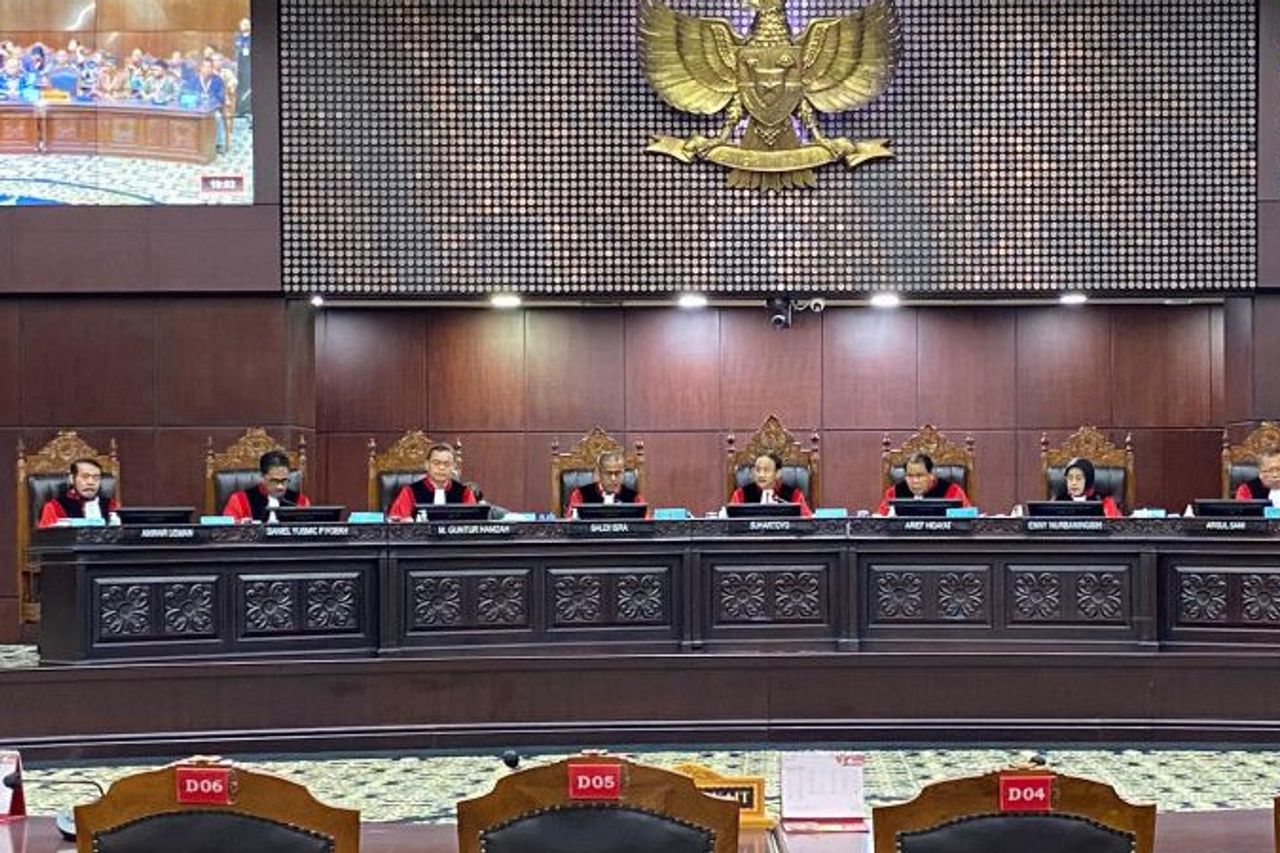The Constitutional Court Rejects Novel Baswedan's Lawsuit Regarding The Minimum Age Of Candidates For KPK Leaders

JAKARTA - The Constitutional Court (MK) rejected the application for judicial review of Article 29 letter e of Law Number 19 of 2019 concerning the KPK, namely related to the requirements for the age of the candidate for leadership (capim) of the Corruption Eradication Commission (KPK), submitted by former KPK investigator Novel Baswedan and colleagues.
"Reject the petitioners in its entirety," said Chief Justice of the Constitutional Court Suhartoyo reading the verdict No. 68/PUU-XXII/2024 in the Plenary Court Courtroom, Jakarta, Thursday, September 12, was confiscated by Antara.
In this case, Novel Baswedan asked the Constitutional Court to include additional phrases in Article 29 letter e of the KPK Law. Novel wants KPK employees who are experienced in carrying out the main functions of the KPK to also register as candidates.
Novel and colleagues asked that the article be interpreted as:
The lowest age is 50 (fifty) years or experienced as a KPK leader or experienced as a KPK employee who carries out the main function of the KPK, namely prevention or law enforcement of corruption at least one period of office for the KPK leadership, or at the highest aged 65 (sixty five) years. )
Novel, one of them, argued that the 50-year-old limitation could result in the loss and reduced chance of obtaining a KPK claim that has special abilities or qualifications.
According to him, many Indonesian citizens under 50 years of age have the qualifications and abilities to become KPK leaders. These leadership candidates are needed to improve the KPK which is considered to be at a nadir point and experiencing a leadership crisis.
Regarding the argument, the Constitutional Court stated that there was no or no opportunity for applicants to register for the KPK's claim in the current period, not to immediately close efforts to improve the KPK institution.
"The Court believes that the improvement of the KPK institution can be carried out through a selection process that produces better leadership candidates, has integrity, has reliable competencies, and has tested independence," said Suhartoyo.
According to the Constitutional Court, while waiting for the momentum of the applicants to meet the requirements to register as KPK candidates, Novel and colleagues can still contribute to eradicating corruption through community participation.
The Constitutional Court also emphasized that determining the age limit in a law is the authority of the legislators. The Constitutional Court can judge the age limit if these provisions violate open legal policy limits.
However, the Constitutional Court did not find any violations of open legal policy restrictions in the cases requested by Novel and colleagues. In addition, the provisions of the age requirements questioned are also considered not to cause institutional problems.
"At least the Court has found no strong potential that changes in age terms result in legal deadlocks and hinders the implementation of KPK's duties as a corruption prevention and prosecution agency," said the Chief Justice of the Constitutional Court.
SEE ALSO:
Furthermore, the Constitutional Court assessed that the problems faced by the KPK at this time were not directly correlated with the requirements for the age of the KPK Capim.
According to the Constitutional Court, if the KPK problem as argued by Novel is true, then it is more related to commitment and integrity, both personally, the KPK leadership and institutionally.
"By changing the limits of the lowest requirements for the leadership of the KPK, it becomes lower or higher, according to the Court it will not immediately result in an increase in the number of registrants with integrity or a decrease in the number of registrants with integrity," Suhartoyo added.
Based on these considerations, the Constitutional Court stated that the arguments for Novel Baswedan's petition and colleagues were not legally justified in their entirety.
However, Constitutional Justice Arsul Sani has a dissenting opinion. Arsul assessed that the Constitutional Court should have granted some of the requests.
Article 29 letter e of the KPK Law tested by Novel et al., in fact it has been interpreted as the Constitutional Court Decision Number 112 / PUU-XX / 2022. Because Novel's application was rejected, the article still reads:
The lowest age is 50 (fifty) years or experienced as a KPK leader, and a maximum of 65 (sixty five) years in the election process.
This case was filed by 12 applicants who are former KPK employees, namely Novel Baswedan, Mochamad Praswad Nugraha, Harun Al Rasyid, Budi Agung Nugroho, Andre Dedy Nainggolan, Herbert Nababan, Andi Abd Rachman Rachim, Rizka Anungnata, Juliandi Tigor Simanjuntak, March Falentino, Farid Andhika, and Waldy Gagantaka.
